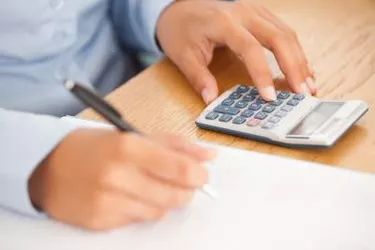
Appreciation describes the increasing value of an asset over time, and is commonly used in reference to increased values of real estate. Comparing the appreciation of different investments can help you determine which investment is best for you. To calculate the average annual appreciation, you need to know the initial price of the investment, the final price of the investment and the number of years the value took to appreciate.
Step 1

Divide the final value of the investment from the initial value of the investment. For example, if you purchased your home for $200,000 and five years later the value equals $230,000, you would divide $230,000 by $200,000 to get 1.15.
Video of the Day
Step 2

Raise the result from Step 1 to the 1/Tth power, with T being the time in years the appreciation took place over. Continuing the example, you would raise 1.15 to the 1/5 power to get 1.028346722.
Step 3

Subtract 1 from the result in Step 2. Furthering the example, you would subtract 1 from 1.028346722 to get 0.028346722.
Step 4

Multiply the result from Step 3 by 100 to find the annual appreciation rate. Concluding the example, you would multiply 0.028346722 to find the annual appreciation rate on the property to be about 2.83 percent per year.
Video of the Day